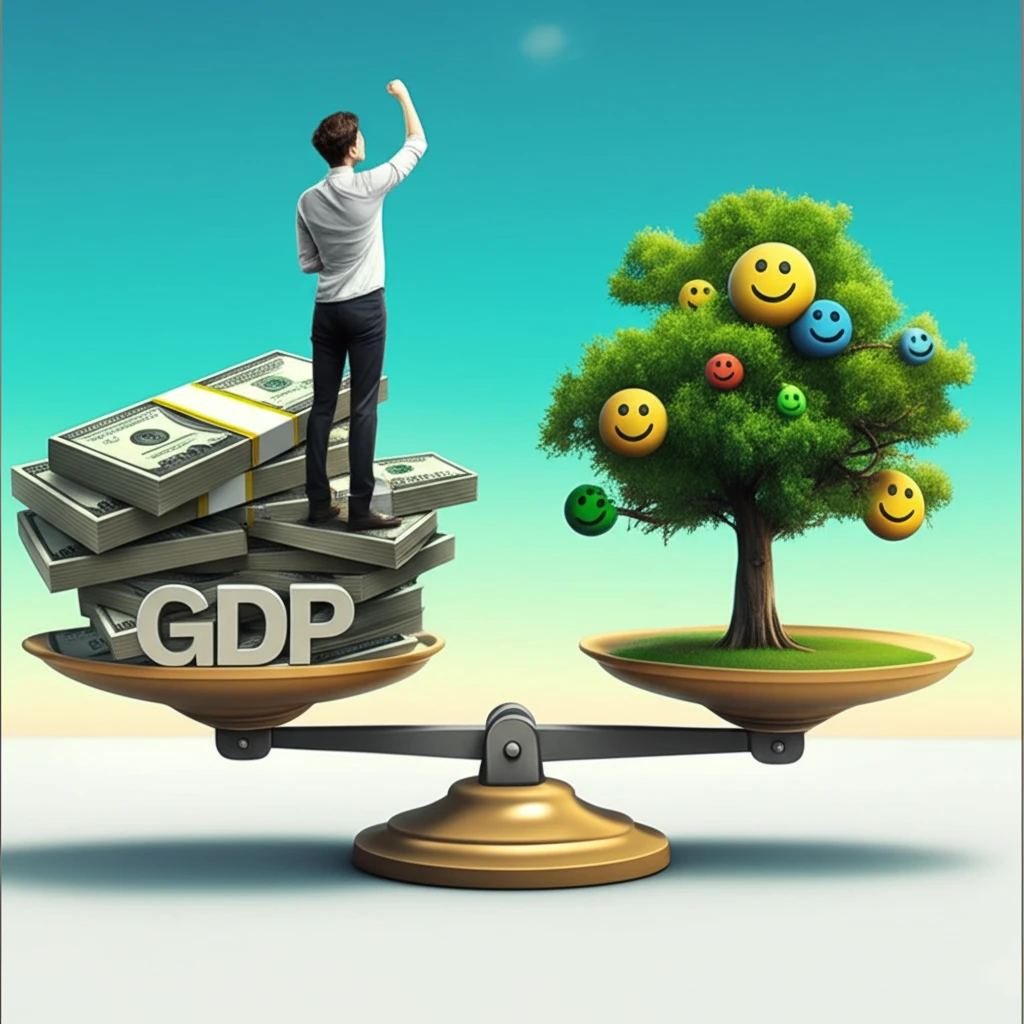
Beyond GDP: Why Measuring Happiness and Sustainability Matters More Than Economic Growth
"Uncover the limitations of GDP as a measure of societal progress and explore alternative approaches that prioritize well-being and environmental sustainability."
In today's world, it's common to hear leaders and experts talk about 'sustainable development' as the key to a better future. However, these words often don't lead to real action. This is especially true in places like Albania, where progress is mainly judged by how much the economy grows, measured by GDP (Gross Domestic Product). But is this the best way to measure how well a society is doing?
For many years, people have questioned whether GDP alone is a good measure of progress. It mainly looks at economic factors, ignoring things like people's happiness and well-being. In this article, we'll explore why we need to look beyond just GDP and consider other ways to measure progress, including happiness and environmental sustainability. This is especially important for countries like Albania, where a more complete picture of progress is needed.
Let's start with a simple example. Imagine a new highway is built between two cities. While this might boost the economy and increase GDP, it could also lead to problems like gas stations on the old road going out of business. This shows how focusing only on economic growth can hide the full story and why we need to consider the bigger picture of sustainable development.
The Problem with Focusing Only on GDP

Using only economic measures like GDP to judge progress has been criticized for a long time. These measures don't consider important things like people's happiness or the health of the environment. If we don't value sustainability, future generations may not be able to live freely. Lack of stability limits our ability to solve social problems.
- GDP Doesn't Account for Environmental Damage: Economic growth can come at the expense of natural resources and environmental health.
- Ignores Social Well-being: GDP doesn't reflect the happiness, health, or education levels of a population.
- Can Mask Inequality: GDP growth can hide the fact that wealth is not evenly distributed.
- Short-Term Focus: GDP often prioritizes immediate gains over long-term sustainability.
Moving Towards a More Sustainable Future
It's time to look beyond GDP as the only way to measure how well a country is doing. We need to adopt measures that consider both the well-being of people and the health of the planet. One such measure is the Happy Planet Index (HPI), which combines well-being and environmental impact. By embracing these alternative measures, we can create a more sustainable and equitable future for all, ensuring a better quality of life for generations to come.
